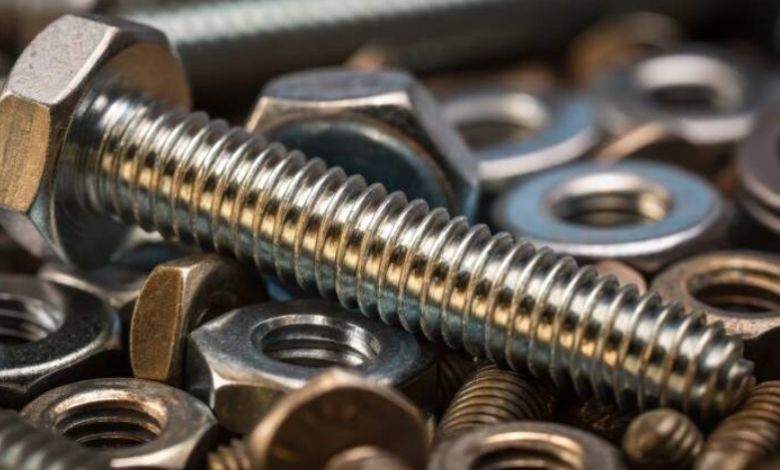Choosing the Right Custom Bolt Manufacturer for Industrial Projects

Introduction to Custom Bolt Solutions
Bolts are more than just pieces of metal holding things together. They serve as critical components in industries ranging from construction and automotive to energy and aerospace. A standard bolt may not always suit a specialized application. That’s where a reliable custom bolt manufacturer comes into play, offering tailored fastener solutions to meet exact specifications and ensure safety, performance, and durability.
Whether your need lies in producing unique sizes, using specific materials, or ensuring high-strength designs, choosing the right partner can significantly impact the outcome of your projects.
Why Custom Bolts Are Essential
Custom bolts are specially designed fasteners engineered to suit precise operational conditions. They are ideal when off-the-shelf solutions fall short in terms of dimensions, tensile strength, or environmental resistance. Here are some key reasons companies turn to a custom bolt manufacturer:
- Unique specifications: Projects often require bolts that fit exact diameters, threads, or lengths.
- Special materials: Some applications demand corrosion-resistant, heat-resistant, or high-tensile materials.
- Compliance needs: Specific industries, like oil and gas, must adhere to international standards for safety.
- Performance and longevity: Custom bolts can improve the lifespan and reliability of equipment.
Key Industries That Rely on Custom Bolts
Several industries depend on custom bolt manufacturing to meet their technical needs. Some of the most prominent include:
Construction and Infrastructure
Large infrastructure projects need fasteners capable of withstanding enormous stress and exposure to weather. A custom bolt manufacturer can provide anchor bolts, foundation bolts, and structural bolts tailored to specific soil and load conditions.
Oil and Gas
In environments where bolts are subjected to extreme temperatures, corrosion, and pressure, standard products simply don’t work. Custom bolts made from materials like Inconel or Duplex stainless steel ensure safety and reliability.
Automotive and Aerospace
Precision is everything in these sectors. Custom fasteners play an important role in ensuring both weight management and structural strength.
Renewable Energy
From wind turbines to solar panel arrays, custom bolts help in achieving secure and long-lasting installations in demanding outdoor environments.
See also: Navigating Computer Repair: The Essential Guide to Tech Insurance Claims
What to Look for in a Custom Bolt Manufacturer
Selecting the right custom bolt manufacturer is not a decision to be taken lightly. Several factors should guide your decision:
Technical Capabilities
The manufacturer should be capable of producing a wide variety of bolts in different shapes, sizes, and materials. From hex bolts to U-bolts, threaded rods to stud bolts, versatility is key.
Material Expertise
A good manufacturer understands how to select custom bolt manufacturer the right raw materials for specific applications. They should be able to work with stainless steel, titanium, carbon steel, and specialty alloys.
Quality Assurance
Look for a custom bolt manufacturer that follows strict quality control procedures and is certified to ISO or other relevant standards. They should provide documentation, testing, and traceability for every batch.
Design and Engineering Support
Sometimes, you might not have a full blueprint of the bolt you need. A manufacturer with an in-house design team can help develop a prototype or modify an existing design to fit your needs.
Production Capacity and Lead Time
Make sure your manufacturer can meet your project’s schedule without compromising on quality. Quick turnaround times, reliable supply chains, and scalable production capacity matter, especially for large or recurring orders.
The Manufacturing Process of Custom Bolts
Understanding how custom bolts are made helps you evaluate a manufacturer’s expertise. The basic process involves:
- Design and specification: Engineers determine size, shape, material, and coating needs.
- Material selection: The appropriate raw material is chosen based on the application.
- Forging or machining: Bolts are formed using hot or cold forging, or CNC machining for complex designs.
- Threading: Threads are added using rolling or cutting processes.
- Heat treatment: To achieve the required hardness and mechanical properties.
- Surface treatment: Galvanizing, coating, or plating is applied to improve corrosion resistance.
- Inspection and testing: Tensile strength, dimensional accuracy, and other factors are checked before packaging.
Advantages of Working with a Trusted Manufacturer
A dependable custom bolt manufacturer doesn’t just supply hardware; they offer value-added services that save money and time. These benefits include:
- Consistent quality across large volumes
- Expert consultation for cost optimization
- On-time delivery to keep projects on track
- Custom labeling and packaging for easier logistics
Additionally, some manufacturers offer inventory management services, so you never run out of the fasteners you need.
Common Custom Bolt Options Available
Here are a few examples of custom bolt types commonly offered by professional manufacturers:
- Hex bolts: With custom head styles, thread lengths, and materials
- Carriage bolts: For wood or composite applications requiring a flush finish
- Eye bolts: Used in lifting and rigging applications
- Flange bolts: Ideal for automotive and machinery assemblies
- Anchor bolts: Used in securing equipment to concrete surfaces
Every type can be tailored in terms of length, pitch, grade, and coating depending on the project requirements.
How to Request a Quote from a Custom Bolt Manufacturer
If you’re ready to place an order, prepare to provide:
- A technical drawing or detailed sketch
- Material specifications
- Quantity requirements
- Coating or finish preferences
- Any relevant industry standards (ASTM, DIN, ISO, etc.)
Clear communication from the start helps the manufacturer assess your needs accurately and avoid delays in production.
Conclusion
Finding the right custom bolt manufacturer is a strategic decision that influences the integrity and success of your project. From tailored designs to dependable delivery, a skilled partner ensures that your fastener requirements are not just met but exceeded. Whether you’re building infrastructure, assembling machinery, or managing energy systems, working with experts in custom solutions will drive efficiency, safety, and long-term performance.
Investing time in selecting the best custom bolt supplier pays off in reduced downtime, fewer replacements, and better results. Make sure to choose a company with experience, certifications, and the flexibility to handle your specifications. That’s how you ensure your next project is built on a foundation of strength—bolt by bolt.




